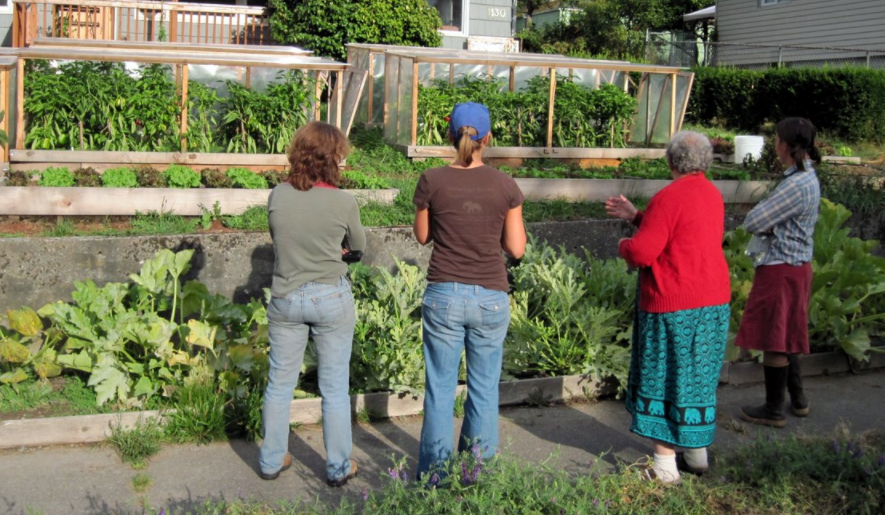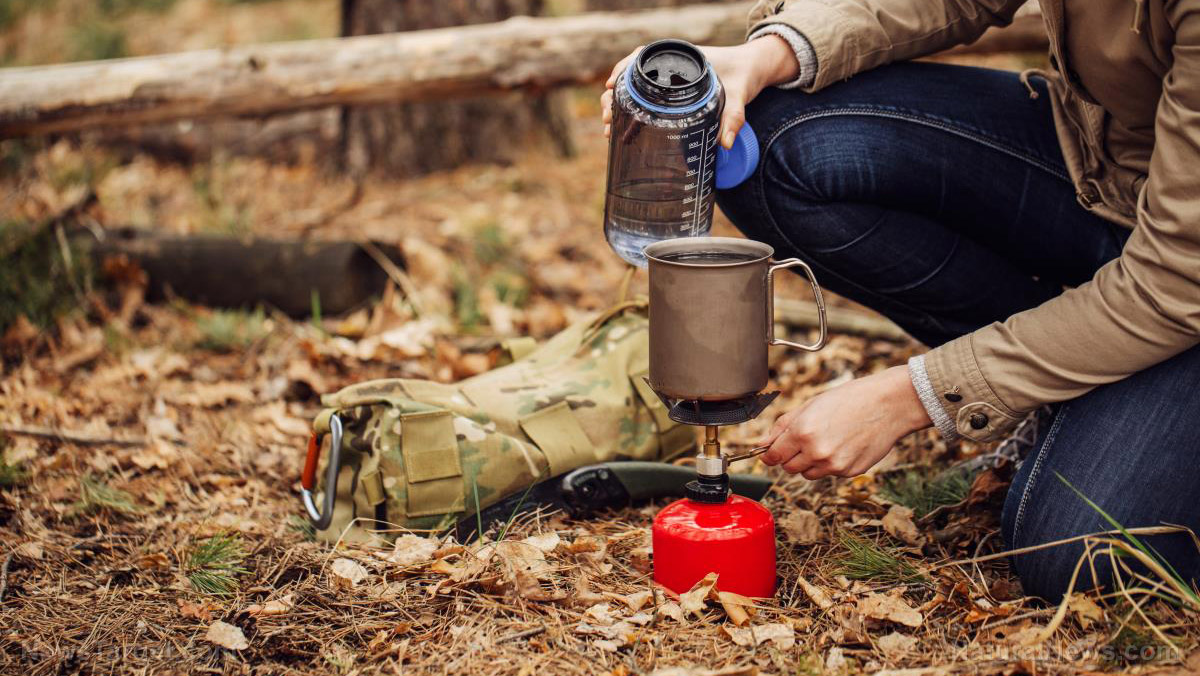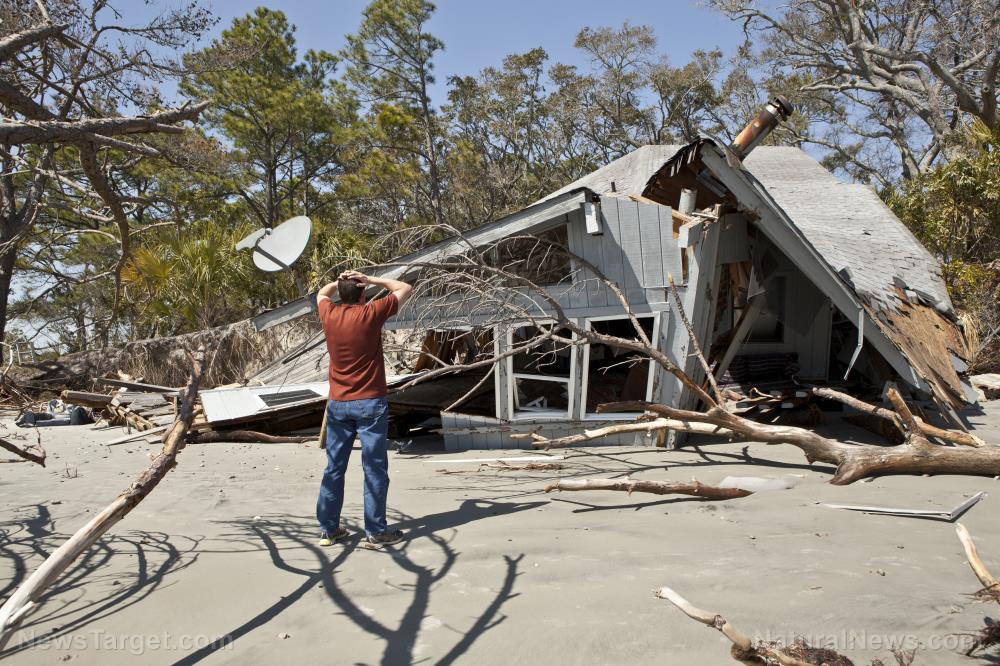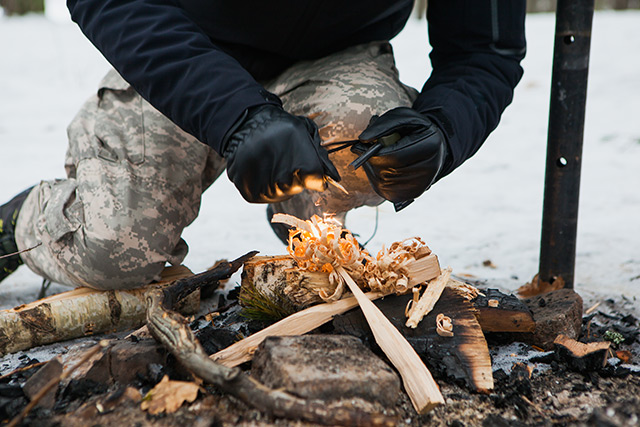Power outages, sanitation, fuel and stockpile storage: How to solve common post-SHTF problems
07/11/2020 / By Zoey Sky

As a prepper, you take the time to set up preps before SHTF so you’re not taken by surprise once disaster strikes. These preps involve knowing how to solve common problems, such as cooking food or refrigerating supplies during a power outage. (h/t to SurvivalBlog.com)
Before the lights suddenly go out
Prepare power banks so you can recharge your smartphones and smaller devices.
Have a backup generator and fuel to power appliances like your fridge or power tools for emergency home repairs. Store the fuel for your generator safely and rotate it regularly.
Don’t use a generator in areas that will let carbon monoxide enter your home. Install a battery-powered carbon monoxide detector with a digital readout inside your house to prevent any mishaps while using your generator.
Stick some outdoor solar-powered garden stake lights in your garden. When the power goes out, gather them and bring them indoors so you have backup light sources for everyone at home.
Long-term sanitation solutions
During a long-term power outage, start filling your bathtub with water. Once the water pressure fails, you must make the water you have last for as long as you can.
If you have the outdoor space to do so, dig a trench for getting rid of human waste. Grow great mullein plants (Verbascum thapsus) nearby for a soft, natural alternative to toilet paper. (Related: Prepping 101: Short-term and long-term sanitation solutions to consider when disaster strikes.)
Cooking without electricity
Get an outdoor propane gas barbecue grill and stove, along with extra fuel tanks. Set up the outdoor grill in your backyard and fill up the fuel tanks so you don’t have to worry about not being able to cook when the power goes out.
Stock up on food items that can be eaten straight from the can so you can easily whip up a meal without taking too long to prep your food.
How to keep insulin “refrigerated” underground
Does someone in your family have diabetes and require insulin? If you know how to naturally “refrigerate” their insulin, you won’t have to worry about their medication going bad if you don’t have a backup power source for your fridge.
First, choose a spot that stays shady during the day then dig a hole about four to five feet deep and 16 to 20 inches wide. The average temperature below four feet deep is cooler than at ground level. Put an upside-down bucket over the finished hole.
Next, cut large empty cardboard boxes into 24-inch wide strips. Turn the strips into large round tubes that fit snugly into the round hole. Use duct tape or string to secure both sides of the tubing and the top and bottom edges.
Push the cardboard tube into the hole, but let the tube top stick up above the ground level. Push some clean rags loosely into the bottom of the tube to keep the dirt out. The rags will also lower the level of ambient cold in the tube.
Store the insulin or any medication that requires refrigeration in a bag, then tie some string on the bag. Let the string stick out the top of the tube a few feet.
Loosely bag up some dirt from the hole, keeping the string poking out of the top of the tube. Make three small dirt-filled sturdy bags that will fill the void above the bag of medicine.
Keep these parts loose in the hole so you don’t have trouble retrieving the bags using the string when you need the meds. The bags will insulate the tube so make sure the bottom of the holes stays at ambient ground temperature.
Always keep gas in your tank
You may need to bug out when SHTF, so always keep your car’s gas tank full. At the very least, leave at least half a tank of gas in your car whenever you can.
When disaster strikes, grab your bug-out bags and meet your family near your car so you can head to your bug-out location immediately.
These preps are essential to your survival when SHTF. Don’t out then off until the last minute.
Prep before you’re in a survival scenario to ensure that your loved ones are safe and well-fed when SHTF.
Sources include:
Tagged Under: cleanliness, emergencies, homesteading, hygiene, off grid, outhouses, power outages, preparedness, prepping, prepping tips, prevention, sanitation, self sufficiency, self-reliance, SHTF, survival, survival skills, survivalist
RECENT NEWS & ARTICLES
COPYRIGHT © 2017 OFFGRID NEWS




















